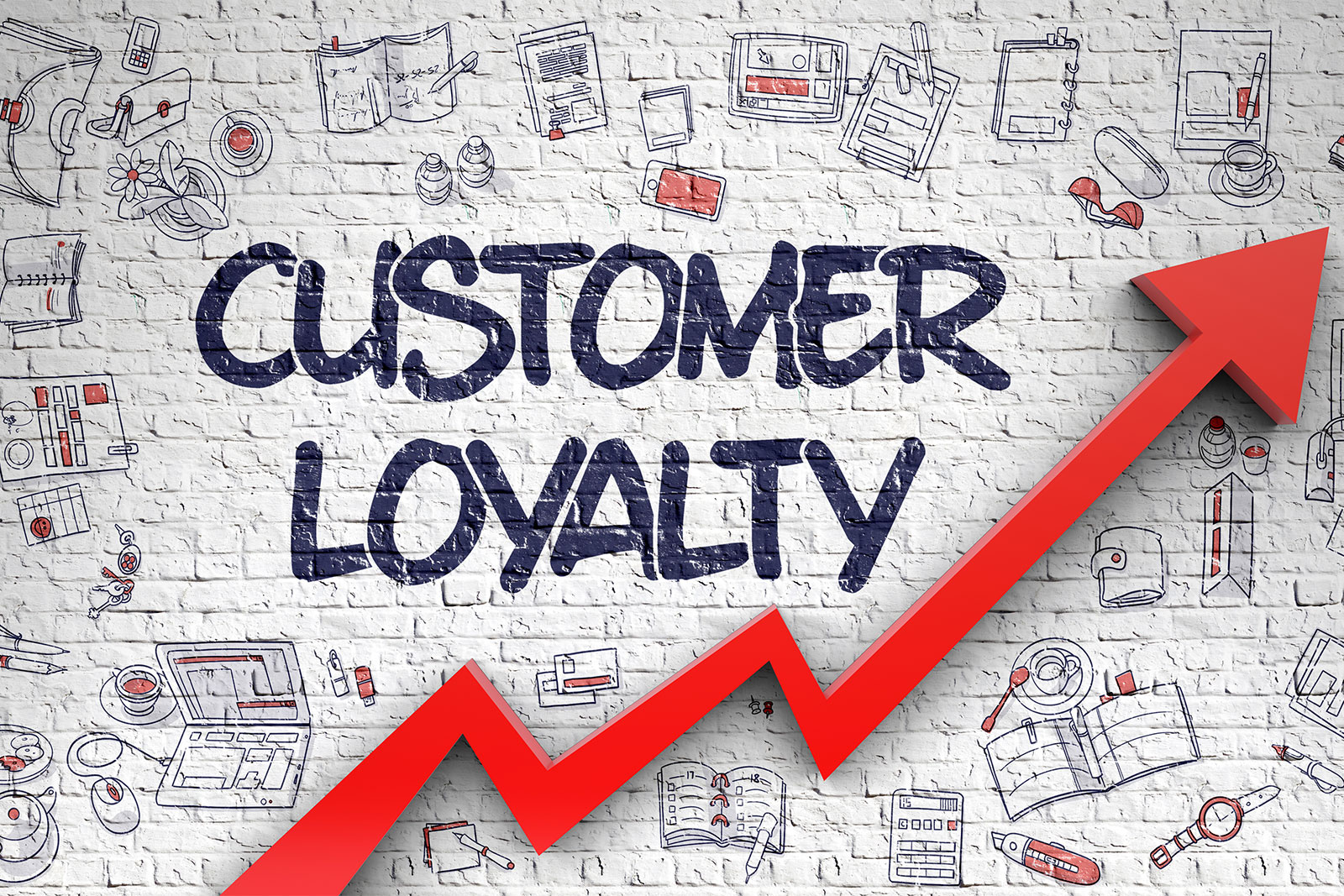What is Customer Loyalty?
Customer loyalty refers to a customer’s commitment to continue buying products or services from a particular brand over time. Loyalty is driven by positive customer experiences, satisfaction, and trust. It goes beyond one-off purchases or short-term engagement—loyalty involves repeated interactions and deep emotional connections that keep customers coming back.
Loyal customers are less likely to be swayed by competitive offers and often choose your brand even when alternatives are available. This level of commitment is not just about a transaction but about ongoing engagement and relationship-building with your brand.
Types of Customer Loyalty
-
Behavioral Loyalty
This type of loyalty is based on repeat purchasing behavior. Customers who demonstrate behavioral loyalty may continue to buy from a brand because of habit, convenience, or the consistency of the product’s quality. However, these customers may not have a strong emotional attachment to the brand. -
Attitudinal Loyalty
Attitudinal loyalty goes beyond behavior. It refers to the emotional connection a customer has with a brand. These customers not only make repeat purchases but also have a favorable attitude towards the brand, value its values, and might actively defend or promote it to others. -
Combination of Behavioral and Attitudinal Loyalty
The most powerful form of https://www.i-novavox.com is a combination of both behavioral and attitudinal loyalty. Customers who are both emotionally invested in your brand and consistently make purchases are the ultimate loyal customers, often forming a strong core group of brand advocates.
Why Customer Loyalty Matters
1. Higher Retention Rates
Loyal customers are more likely to return, reducing churn rates. Retaining an existing customer is much more cost-effective than acquiring a new one, as the cost of marketing, sales, and customer acquisition is reduced.
2. Increased Lifetime Value (CLV)
Customer Lifetime Value (CLV) refers to the total revenue a business can expect from a customer over the duration of their relationship. Loyal customers tend to spend more over time, boosting your overall revenue and ensuring long-term financial stability.
3. Word-of-Mouth and Referrals
Loyal customers are your best advocates. They are more likely to recommend your brand to friends, family, and colleagues, which can result in valuable word-of-mouth marketing. Positive referrals lead to new customer acquisition and contribute to brand growth.
4. Competitive Advantage
Loyalty can act as a defense mechanism against competitors. When customers are emotionally connected to your brand, they are less likely to switch to competitors, even if they offer a better price or feature set.
5. Reduced Price Sensitivity
Loyal customers are generally less price-sensitive. They are more willing to pay a premium for the brand they trust and love because the value they receive goes beyond just the product—it’s about the entire experience and the brand promise.
6. Better Feedback and Insights
Loyal customers are often more engaged and willing to provide valuable feedback. They are invested in your brand’s success and can offer insights that help you improve your products, services, and overall customer experience.
Effective Strategies for Building Customer Loyalty
Building and maintaining customer loyalty requires ongoing effort, innovation, and a customer-first mindset. Here are some strategies that businesses can implement to foster loyalty:
1. Deliver Exceptional Customer Service
High-quality, responsive customer service is a cornerstone of customer loyalty. When customers encounter problems or have questions, offering timely, helpful, and friendly support creates positive experiences that build trust. Training staff to handle inquiries professionally and going above and beyond to resolve issues can turn even dissatisfied customers into loyal advocates.
- Tip: Offer multiple customer service channels, such as live chat, email, and social media, to provide accessible and quick solutions to customer concerns.
2. Personalize the Customer Experience
Personalization makes customers feel valued and understood. Use customer data to tailor experiences, whether through personalized emails, product recommendations, or exclusive offers based on their purchase history. Personalization helps customers feel like the brand is paying attention to their specific needs, leading to greater satisfaction and loyalty.
- Tip: Use CRM tools to segment your customer base and deliver targeted content or promotions that match their preferences.
3. Create a Loyalty Program
A well-designed loyalty program incentivizes customers to return and make repeated purchases by offering rewards, discounts, or exclusive access to products. These programs not only encourage repeat business but also create a sense of community and belonging around your brand.
- Tip: Ensure that the rewards are meaningful to your customers and that the program is easy to use. Regularly update rewards to keep customers engaged.
4. Build Emotional Connections
Emotional loyalty is often stronger than transactional loyalty. By aligning your brand with values that resonate with your customers—such as sustainability, community support, or social responsibility—you can create a deeper emotional bond that drives loyalty.
- Tip: Share authentic stories about your brand’s mission, values, and the positive impact you have on society. Customers who feel emotionally connected to your brand are more likely to remain loyal.
5. Engage with Customers Consistently
Regular engagement through social media, email newsletters, blog posts, and even in-person events helps keep your brand top of mind. Consistent communication fosters a sense of connection and keeps customers engaged with your brand, even between purchases.
- Tip: Use social media to create a two-way conversation with customers. Respond to comments, share user-generated content, and ask for feedback to show you value their input.
6. Exceed Customer Expectations
Going above and beyond to exceed customer expectations can create memorable experiences that build loyalty. Whether it’s through faster delivery, surprise discounts, or exceptional product quality, exceeding expectations creates positive word-of-mouth and fosters customer trust.
- Tip: Regularly assess customer satisfaction and seek out opportunities to add extra value or surprises that delight your customers.
7. Offer Exclusive Benefits or VIP Treatment
Make your loyal customers feel special by offering them exclusive perks. These could include early access to new products, VIP customer service, or special invitations to events. Exclusive treatment makes customers feel valued and reinforces their decision to stick with your brand.
- Tip: Implement a tiered loyalty system where customers earn progressively more rewards the more they engage with your brand.
8. Request and Act on Feedback
Actively seek feedback from your customers and use it to improve your products, services, and overall experience. Customers who see their opinions valued and implemented are more likely to remain loyal to a brand.
- Tip: Create surveys or use online reviews to collect feedback, and always let customers know how their feedback is helping to shape improvements.
Examples of Customer Loyalty in Action
-
Amazon Prime
Amazon’s loyalty program, Amazon Prime, offers members benefits like free shipping, access to exclusive content, and early product releases. This membership creates long-term loyalty as customers feel they are receiving exclusive perks, making them more likely to continue shopping on Amazon. -
Starbucks Rewards
Starbucks’ loyalty program allows customers to earn rewards points with every purchase, which can be redeemed for free drinks and other perks. The personalized offers and exclusive rewards create strong emotional connections and encourage repeat visits. -
Apple
Apple has built a fiercely loyal customer base by offering high-quality products, exceptional customer service, and a seamless ecosystem of devices. Customers feel emotionally connected to the brand, leading to high repeat purchases and advocacy.
Conclusion
Customer loyalty is one of the most valuable assets a business can have. Loyal customers bring repeat business, word-of-mouth referrals, and valuable feedback that drive growth. Building and maintaining customer loyalty requires a combination of excellent customer service, personalized experiences, emotional engagement, and consistent value.
By implementing the right strategies—such as creating loyalty programs, exceeding expectations, and engaging with customers regularly—businesses can cultivate strong customer loyalty that ensures long-term success. Remember, loyal customers are not just repeat buyers; they are advocates who help propel your brand to new heights.




